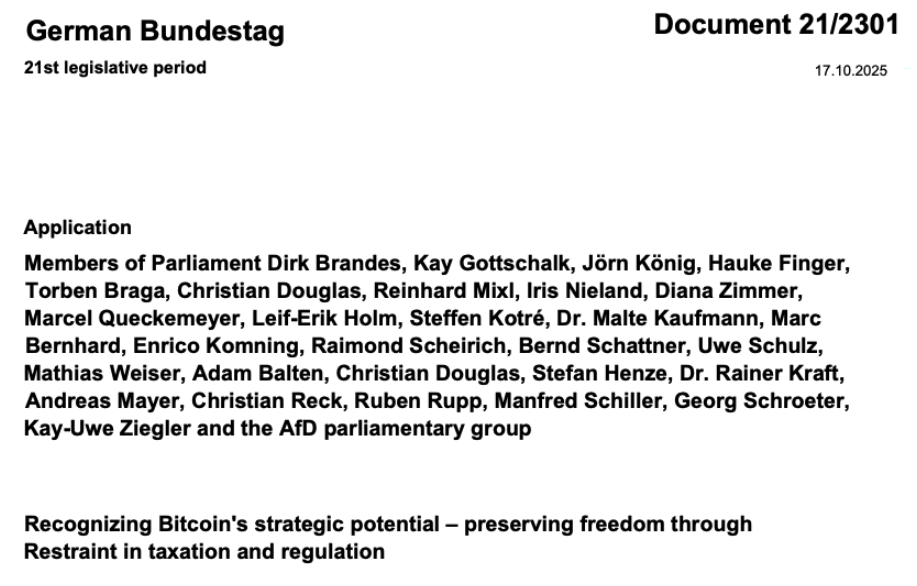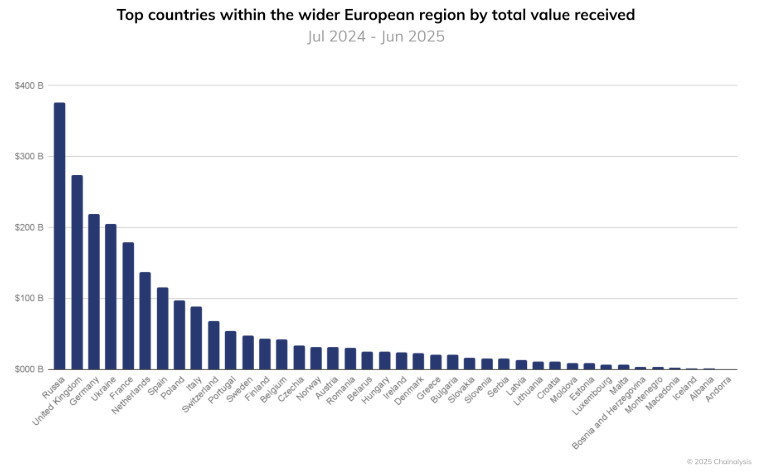
A Bold Stance: Germany‘s AfD and the Bitcoin Revolution
The political landscape in Germany is witnessing a notable shift in perspective regarding Bitcoin. The Alternative for Germany (AfD), a prominent opposition party, has officially submitted a motion to the Bundestag, the German parliament. This motion calls for a strategic re-evaluation of Bitcoin, positioning it not merely as another crypto asset but as a unique entity deserving of specific consideration. This move signals a potential turning point in how Germany approaches the burgeoning world of digital currencies.

Rejection of Overregulation: A Key Tenet
Central to the AfD‘s motion is the rejection of excessive regulation for Bitcoin. They argue that applying the Europe-wide Markets in Crypto-Assets (MiCA) framework indiscriminately to Bitcoin could stifle innovation and harm Germany’s competitive edge. The AfD believes that Bitcoin‘s fundamental differences warrant a tailored approach, recognizing its distinct characteristics compared to other cryptocurrencies. Their concern centers on preserving “innovative capacity, financial freedom, and digital sovereignty.”
Taxation and Strategic Asset Status: Key Considerations
Beyond regulation, the AfD‘s motion addresses Bitcoin‘s tax treatment and its potential role in national reserves. While acknowledging the current positive tax treatment, the party highlights the lingering legal uncertainties that can deter long-term investment. Furthermore, the AfD urges the German government to consider Bitcoin as a strategic asset, exploring its potential for energy integration and as a hedge against monetary instability. This perspective mirrors a growing trend among some nations considering Bitcoin‘s role in national reserves. They are advocating for maintaining the current 12-month holding period for tax-exempt gains, keeping Bitcoin’s VAT exemption, and ensuring individuals retain the right to self-custody.
A Ripple Effect Across Europe
Germany’s AfD isn’t alone in advocating for a more favorable Bitcoin stance. Similar movements are brewing across Europe. Notably, Éric Ciotti of the Union of the Right for the Republic in France recently initiated a parallel effort. This momentum indicates a broader trend of acknowledging Bitcoin‘s unique position and rethinking regulatory approaches. The growing number of EU states exploring Bitcoin reserves is a testament to the changing financial landscape.
MiCA and its Implications
The MiCA framework, designed to regulate the crypto-asset space, has sparked debate. While some, like the blockchain analytics firm Chainalysis, believe MiCA has solidified Germany‘s position as a favored destination for crypto-native firms, others express concern that it may hinder innovation if not implemented carefully. The AfD’s motion highlights this tension, advocating for a nuanced approach to Bitcoin regulation that fosters growth and innovation.

The Path Ahead
The AfD’s motion represents a significant step towards legitimizing Bitcoin within the German political sphere. Its success remains to be seen, but the very act of proposing this motion underscores the growing recognition of Bitcoin‘s importance. As the debate continues, it will be interesting to observe how Germany balances its regulatory framework with its ambitions to remain at the forefront of financial innovation.


